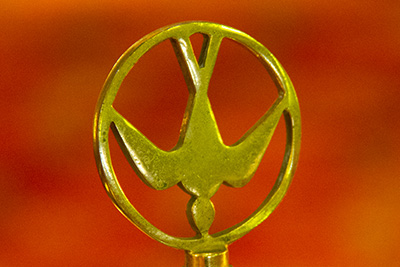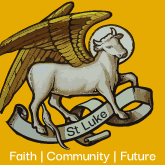 Pentecost is a special event in the Catholic calendar as it marks the day that the Holy Spirit descended on the apostles of Jesus. As his Holiness Pope Francis said during his homily at the Holy Mass on the Solemnity of Pentecost last year, 'On the day of Pentecost, the Spirit came down from heaven, in the form of "divided tongues, as of fire… [that] rested on each of them. All of them were filled with the Holy Spirit, and began to speak in other languages" (Acts 2:3-4).'
Pentecost is a special event in the Catholic calendar as it marks the day that the Holy Spirit descended on the apostles of Jesus. As his Holiness Pope Francis said during his homily at the Holy Mass on the Solemnity of Pentecost last year, 'On the day of Pentecost, the Spirit came down from heaven, in the form of "divided tongues, as of fire… [that] rested on each of them. All of them were filled with the Holy Spirit, and began to speak in other languages" (Acts 2:3-4).'
Seven aspects of interest to this Solemnity:
- Pentecost does not fall on a set date each year but is always held between May 10 and June 13. This is because Pentecost depends on the timing of Easter, which is not celebrated on a fixed date.
- Pentecost is celebrated 50 days after Easter. The word Pentecost comes from the Greek word 'Pentikostí', which means fiftieth.
- Pentecost is also celebrated 7 days after the ascension of Jesus to heaven.
- Pentecost is often called the 'birthday of the church' as it was the day the Holy Spirit entered the 12 apostles and is said to have been when the Church began. Speaking at the Holy Mass on the Solemnity of Pentecost on May 23, 2010, Pope Benedict XVI noted, 'There is no Church without Pentecost.'
- Following Pentecost, the apostle Saint Peter (the first Pope) preached his first sermon and is said to have converted thousands of people, in what were the early beginnings of the Church.
- Priests often wear red vestments on Pentecost. The red symbolising the tongues of fire that came to the apostles at Pentecost and gave them the ability to speak and understood any language to enable them to spread the word of God.
- Flames, wind, a dove and the breath of God are some of the symbols that are used to represent the Holy Spirit during Pentecost.





 17 Stevens Road, Vermont VIC 3133 | 03 9412 8499
17 Stevens Road, Vermont VIC 3133 | 03 9412 8499